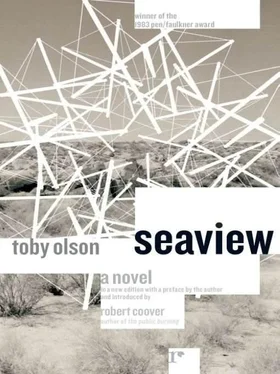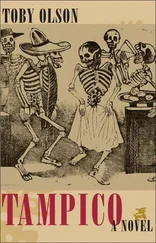The conversation was short, and Richard’s voice was strangely flat.
“We’re talking about twenty-thousand dollars so far, man. When you hit K.C. do it right. We’ll see about the other. Call me when it’s done.”
Allen didn’t tell him what he had done with the Kansas City package, but he did say he didn’t plan to risk going to K.C. He started to mention Melinda, but he changed his mind and didn’t do it. Richard would have none of the K.C. risk talk. He spoke as if he hadn’t heard it, and when he was finished he hung up.
IN ANOTHER HALF-HOUR THEY WERE AS FAR NORTH AS Sioux City, Iowa, about seventy-five miles west of it, and they came to a town where they agreed to stop. Even as they approached the far reaches of the town they could tell that it was one of those places whose economy had depended in large part on the road passing through it being well traveled. The coming of the big highway, a good four miles from it, with no exit roads or signs, had taken the traffic away, and now the town lay waste. It had to get what it could from truck traffic and occasional sightseers. Weeds grew in the small town square; many of the buildings in the short central block of Main Street were boarded up. Few people were on the sidewalks. They went through the town, and about a block after the stores quit and the seedy motels began, across the street from a small, closed Dairy Queen, they found a place that seemed adequate. There was an office in front, a small unconnected building with a driveway on either side. The drives lead between the sides of the office and the two low, severe, rectangular blocks of rooms extending back from the road. Between the rectangles, the rooms facing into it, was an empty swimming pool with grass growing between the slate of its decking. He parked and went into the office to check them in. When he came out he had a slight smile on his face.
“What’s up?” Bob White said when he got back into the car.
“A little surprise,” he said, and he drove the car across the cracked blacktop to their adjoining rooms. He and Bob White unloaded their gear. Melinda checked the bathrooms, finding them clean enough, and tested the springs on the bed on their side. It was four-thirty by the time they were finished getting settled. They were sitting in the chairs in Bob White’s room. They had eaten a late lunch, and they had decided that a drink and snack would be enough. They drank watery Scotch and ate cheese and crackers. All the time they had been unloading, Melinda and Bob White had been watching Allen, wondering about the surprise and playing the game of not asking about it.
“Are you two ready for a little action?” he asked them finally. They both nodded, enjoying his withholding.
“Okay, wait here, I’ll be right back,” he said, and he left the room and headed over to the office. Bob White got up and opened the drapes that covered the window, and they watched him enter the office. He came out a few moments later, carrying something.
“What’s he got there?” Melinda asked.
“Looks like golf clubs,” Bob White said, “looks like putters.”
When he entered the room again, he was grinning broadly; he had the three putters in his left hand, and he raised a finger on his right, indicating that there should be no questions yet. He went to the gunny sack in the corner of the room, flipped its neck over, and pushed on the bag to get a few balls out of it; about ten rolled out into the room. He ran his hands over them, turning them, and selected three: a nearly new Golden Ram and two range balls, one with a red stripe around it, the other with a large black circle on its side. He put the three balls on the bed and turned to Melinda, holding the three putter heads in his hands, fanning the shafts out and presenting them to her for selection. By this time she was grinning too, and she chose one of the putters. Then he turned to Bob White and did the same thing with the remaining two clubs.
“Now we had better practice some before we go out to the links,” he said, and he pushed a good number of balls out of the gunny sack onto the carpet and began to show them how to hold their putters and how to stroke. Melinda already knew how to hold a putter, and Bob White had seen enough golf in his time so that he too had no trouble with this. The three of them began to putt balls around the room, aiming for the legs of furniture, thudding balls against the wall and the door. Allen gave them various clipped phrases of instruction: head down, feet well planted, accelerate through the ball, hit on the sweet spot, don’t push. The room was a small space for such activity; they had a lot of balls on the floor, and they hit balls into each other and bounced them off each other’s feet at times.
“This is a crowded green,” Bob White said, and the other two agreed, laughing, and they all said excuse me when they got in each other’s way. After a while, he suggested that they quit, that they were ready now, and he pointed to the bed, suggesting that Melinda take her pick of balls. She selected the Ram, and Bob White took the ball with the red stripe around it.
After he had rounded up the golf balls on the rug and put them back in the gunny sack, he led them out the door and down to the end of the rectangle in which their rooms were located. At the end, where the cracked sidewalk ended, there was a dirt path leading around the back of the building, and he motioned for them to follow him down it. When they got to the back of the building, he stopped. Melinda and Bob White came up beside him, and they looked at what was before them.
The upper mandible of the whale stood as an archway of entrance into the grounds of the miniature golf course. At either side of the jaw’s hinges, where they pressed into the ground, a low white picket fence went out and around the ragged oval of the course. The fence dipped half into ruin in various places where the course descended into the bottom of its cavity behind the whale’s jaw, and weeds curled into the fence, making it an awkward crown of thorns. The jaw of the whale had the shape of a massive wishbone; it was at least eight feet high at its apex, and he wished the feel of the place did not remind him so much of Tombstone, the bag lying at the edge of the desert, the man coming up off the ground like a crab toward him, the gun in the torn sleeve. This place too was at the edge of things, the course a kind of exaggerated instance of the slow ruin of the town that had been passed by. Beyond the course were the wasted grainfields moving in from the hum of the highway, a good three miles away, and the fields seemed to be reclaiming the ground the course stood on. The weeds and obscure offshoots of the dead stalks of old corn had crept back into and over the course, and they were touching up against the back of the cinder blocks of the motel itself.
The jaw of the whale was pinioned with a large bolt where the wishbone joined at its top; the head of the galvanized bolt protruded on one side, the nut on the other. The entire surface of the jaw was marked with initials carved into its bone and the peeling remnants of fingernail polish and other paints that had been used by those who had no knives or chisels. Weathering had turned the carvings into signs and emblems, and away from words, and when they stepped into the tortured archway, Melinda thought of the mutilation of goosefish on the bay beaches of the Cape. When she was a child, she had seen other children stab and hack at the horny skin of the beached monsters in outrage at their ugliness, leaving them with pointed sticks standing like quills in their hides. The difference was in the bone quietness of the whale’s jaw and the fact that it was in Nebraska. It seemed ancient here and beyond any quality of pain. Its shape stood out of the carvings and the paint, its power within its stillness hardly diminished, and the three of them were a little nervous standing within it.
Читать дальше












